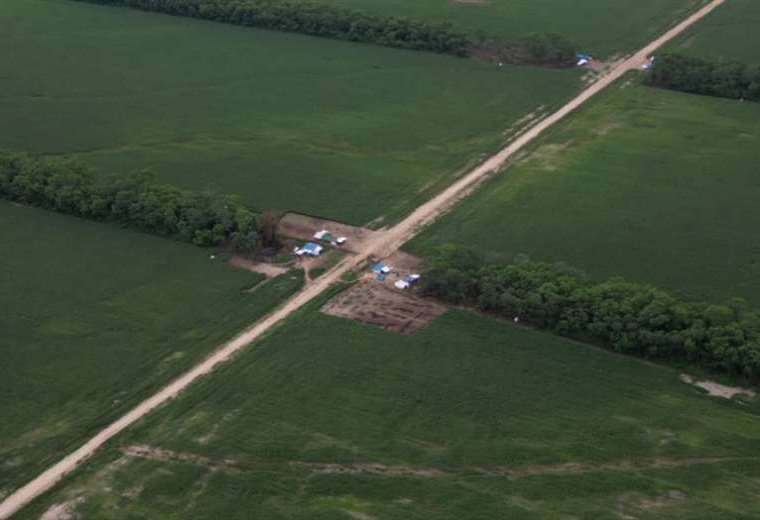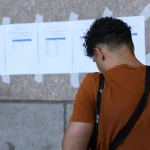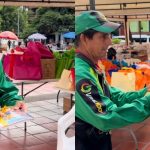March 2, 2023, 4:00 AM
March 2, 2023, 4:00 AM
The legal representative of the Santagro property, located in the municipality of Guarayos, Uber Zambrana, said that the leaders of the irregular and armed group that by force took over and controls the agricultural property, are in the process of negotiating (selling) the 1,800 hectares of field-grown soybeans.
He noted that, in addition to the grain harvest being compromised, the productive losses are considerable, taking into account that due to the limitation of entry to the property, weed control and other activities that must be carried out prior to harvest were not carried out.
“The perpetrators, accomplices and participants in the takeover will have to financially repair the productive losses that are registered once they are able to enter and the damage to the crops is quantified,” said Zambrana, urging the invaders to leave the farm peacefully. productive.
In the legal field, the lawyer indicated that several procedures have been carried out and the authors, accomplices and participants in the reported crimes are in the process of being identified.
“We want to ask the national government once again, through the Police, to fulfill its obligation to protect property rights and evict the Santagro subjugators,” said Zambrana, confirming that, in addition to the productive damage, the ‘tomatierra’ have stolen trucks, a tractor, five motorcycles and agrochemicals.
On February 12, with firearms, machetes, and sticks, a group made up of at least 180 people retook the property, violently evicting 35 police officers who were guarding the area. In December 2022, the same group of people illegally entered the property, 30 km from the Las Londras area, in the Guarayos province. That time the loss of 1,400 planted hectares was recorded.
The Santagro property has precautionary measures, it is land that has been producing food for more than 20 years and where the producers made important investments for the sustainability of the soil and production. The growers are known to have legal possession of Santagro.
Mario Aguilera, another legal representative of the property, explained that until now the notification to carry out the respective eviction could not be obtained.
Aguilera regretted that, due to the bureaucracy and the lack of resources of the Bolivian justice system, the paperwork is still going on and there is no certainty of where the property, crops and agricultural machinery that was in the place are located.
The lawyer maintained that, since Santagro was retaken, it is not known how many people are in the place, since it cannot be reached due to the control and violence exerted by the oppressors on all those who approach the zone in conflict.
Asked about the actions that are carried out on the subjugated property, Franz Carrasco, Agro-environmental judge of San Ramón, said that he has only issued a report because the case depends on the Agro-environmental Court in Sucre. “It is a contentious process between the owners and INRA,” explained the authority.
Under agri-environmental justice
From the National Institute of Agrarian Reform (INRA), the national director Eulogio Núñez, clarified that the entity has already completed the sanitation process, so it is outside the jurisdiction of INRA, currently contested and is under the jurisdiction of the Agro-environmental Justice.
“In this case, the Agro-environmental Court -since this property is being contested in the Administrative Litigation process- is in charge of issuing precautionary measures and even requesting assistance from the public force for its eviction,” explained the authority in contact with EL DEBER.
Núñez maintained that INRA only has jurisdiction in two cases: ongoing regularization processes and available public land.
As will be recalled, on August 16, 2022, the First Chamber of the Agro-environmental Court of Sucre, as the competent authority, issued several precautionary measures; among them, the prohibition of human settlements in Santago, as requested by INRA.
Likewise, it is prohibited to innovate, contract or dispose, nor the transfers of the Santagro property, considered ‘fiscal land’.
The Court also ordered the suspension of chaqueos, clearing or the use of forest or natural resources.
However, it is noteworthy that this judicial unit, in its tenth section, rejects the INRA request that requested “the eviction of all recent illegal settlements” and justifies that “the measure may be ordered, depending on the circumstances, if appropriate and prior judicial inspection, with all the effects established by the regulations in force”.

















